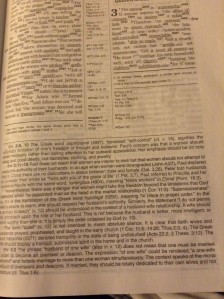It’s been said many times, many ways, MERRY CHRISTMAS TO YOU. Although Merry Christmas is the common North American greeting around this time of year, it is not necessarily true around the world, nor has it always been the case.
Merry Christmas is known to date back to 1534 and in 1843 it is mentioned in Dicken’s A Christmas Carol. But at some point over the years, at least in Britain, ‘merry’ implied drunken festivities. For this reason, Queen Elizabeth II prefers “Happy Christmas”. Happy Christmas is still popular in the UK today, but rarely heard in North America.
Season’s Greetings and Happy Holidays
The phrase Season’s Greetings is not new, it became popular in the 1920s and was used on Eisenhower’s White House Christmas card in 1955. Happy Holidays has likewise been around for more than 100 years and typically refers to the period between the American Thanksgiving and New Years Day. It is largely used in the US.
Merry X-mas
X-mas denounced in 1957 by Gerald L. K. Smith, who in December 1966 claimed that Xmas was a “blasphemous omission of the name of Christ” and that “‘X’ is referred to as being symbolical of the unknown quantity.” Smith further argued that Jews introduced Santa Claus to suppress the New Testament accounts of Jesus, and that the United Nations, at the behest of “world Jewry”, had “outlawed the name of Christ”.[39] Yeah, so conspiracy theories regarding a hatred or war on Christmas aren’t new.
But then, at some point later on, the general consensus was that ‘X’ WAS an appropriate symbol for Christ!
“There is, however, a well-documented history of use of Χ (actually a chi) as an abbreviation for “Christ” (Χριστός) and possibly also a symbol of the cross.[40][41] The abbreviation appears on many Orthodox Christian religious icons.”
What do Muslims actually think of Christmas?
One of the reasons there was a trend toward a secular greeting was in order to acknowledge the fact that there are many other religions that do not necessarily celebrate Christmas. Many Americans have a perception that Muslims coming into their country will somehow diminish their ability to celebrate Christmas. But in reality, most Muslims don’t really care if you say Merry Christmas to them and are happy to say it in return. Here is a short article about how most Muslims likely think of Christians and Christmas.
https://blogs.tribune.com.pk/story/31033/is-it-really-shirk-to-wish-someone-a-merry-christmas-zakir-naik/
Of course not all Muslims agree, as some are more in line with this cleric –
https://archive.org/details/Dr.ZakirNaik-wishingMerryChristmasForbiddenharamInIslam-
The main reason that Muslims do not celebrate is that they believe Jesus was a prophet only, and not the true son of God. Therefore it would be sacrilege to celebrate someone who claimed to be God.
However, there are a few truths in that article:
- “The date itself is based on a pagan Roman holiday, the actual birthdate of Jesus is unknown.”
- “So as any rational person can see, there is no sound basis for Christmas, nor did Jesus (peace be upon him) or his true followers celebrate Christmas or ask anyone to celebrate Christmas, nor was there any record of anyone calling themselves Christians celebrating Christmas until several hundred years after Jesus.”
It is true that nowhere in the Bible is it suggested that Christians mark or remember Jesus’ birth.
Christmas Controversies over the years
Ironically, in 1647, Puritan Christians BANNED the celebration of Christmas altogether for its paganism.
In Victorian times, certain pagan elements of Christmas were controversial – yule logs, candles, mistletoe, Christmas trees etc. Many Protestants wanted to keep the celebration of Christ’s birth without the pagan elements.
In the 1954, C.S. Lewis wrote a humorous satirical piece highlighting the split between secular and religious aspects of Christmas in his Xmas and Christmas – A Lost Chapter from Herodotus. I had a good chuckle when I read this and recommend the short read.
Other Christmas controversies – https://people.howstuffworks.com/culture-traditions/holidays-other/10-holiday-controversies.htm
War on Christmas
You may have heard of the so-called ‘war on Christmas’? Where does this phrase come from and is there actually one or was this just Bill O’Reilly at Fox News getting the Christians all riled up and more recently providing a rallying cry for Trump to gather all the Evangelicals to his camp?
NY Times article – https://www.nytimes.com/2016/12/19/us/war-on-christmas-controversy.html
The AFA and their Naughty or Nice List of US Retailers
AFA – the American Family Association states their mission as follows – “The mission of the American Family Association is to inform, equip, and activate individuals to strengthen the moral foundations of American culture”. For the past 10 years, the AFA has published The Naughty or Nice list; a list of retailers who are judged based on whether they use the word Christmas in their advertising (as opposed to generic ‘holiday’). They claim that “There are secular forces in our country that hate Christmas” and encourage Christians to shop at stores that ‘keep Christ in Christmas.’ My question is this – Why is an organization intent on promoting family values in the business of promoting retail businesses, which is basically promoting buying more stuff, and promoting consumerism, none of which have anything to do with remember the birth of Christ?
Taking the stance ‘if you say Happy Holidays to me, I will be greatly offended‘; or ‘if your business doesn’t explicitly use the word Christmas in your advertising then I refuse to do business with you’ does not sound very Christ-like at all. For a religion based on grace, I think we frequently miss the point.
Shouldn’t family values at Christmas be about remembering Christ’s birth, and giving to others? Have we, like the Pharisees, forgotten justice, mercy and faithfulness? Jesus never asked us to commemorate his birth, but if He were to visit America today, how would He want us to mark a celebration with his name on it? I think He would be wanting us to help our neighbours, feed the hungry, and give to the poor. Do you think He would be concerned about whether or not the word ‘Christmas’ is being used or would He be more concerned about the state of the heart of each of us? Jesus’ warning to the Pharisees could easily have been written as a warning to Christians in North American today (From Matthew 23, emphasis mine)
Then Jesus said to the crowds and to his disciples: 2 “The teachers of the law and the Pharisees sit in Moses’ seat. 3 So you must be careful to do everything they tell you. But do not do what they do, for they do not practice what they preach. 4 They tie up heavy, cumbersome loads and put them on other people’s shoulders, but they themselves are not willing to lift a finger to move them.
5 “Everything they do is done for people to see: They make their phylacteries[a] wide and the tassels on their garments long; 6 they love the place of honor at banquets and the most important seats in the synagogues; 7 they love to be greeted with respect in the marketplaces and to be called ‘Rabbi’ by others. …
23 “Woe to you, teachers of the law and Pharisees, you hypocrites! You give a tenth of your spices—mint, dill and cumin. But you have neglected the more important matters of the law—justice, mercy and faithfulness. You should have practiced the latter, without neglecting the former. 24 You blind guides! You strain out a gnat but swallow a camel.
25 “Woe to you, teachers of the law and Pharisees, you hypocrites! You clean the outside of the cup and dish, but inside they are full of greed and self-indulgence. 26 Blind Pharisee! First clean the inside of the cup and dish, and then the outside also will be clean.
Conclusion
I was not able to find any evidence of an actual plot to kill Christmas, or any organized groups who ‘hate Christmas’. There certainly does not seem to be any forces in the retail world that ‘hate Christmas’ given that this season will generate the highest sales of season. Politicians will start saying ‘Merry Christmas’ because it is supported by the people, especially those who have a perception that it has been diminished.
It seems to me that C.S. Lewis and even Dr. Seuss’ ‘How the Grinch Stole Christmas’ teach a more appropriate lesson than the AFA, or Fox News.
Whatever greeting you decide to use during the season , let’s make it sincere and laced with grace, kindness and love.























